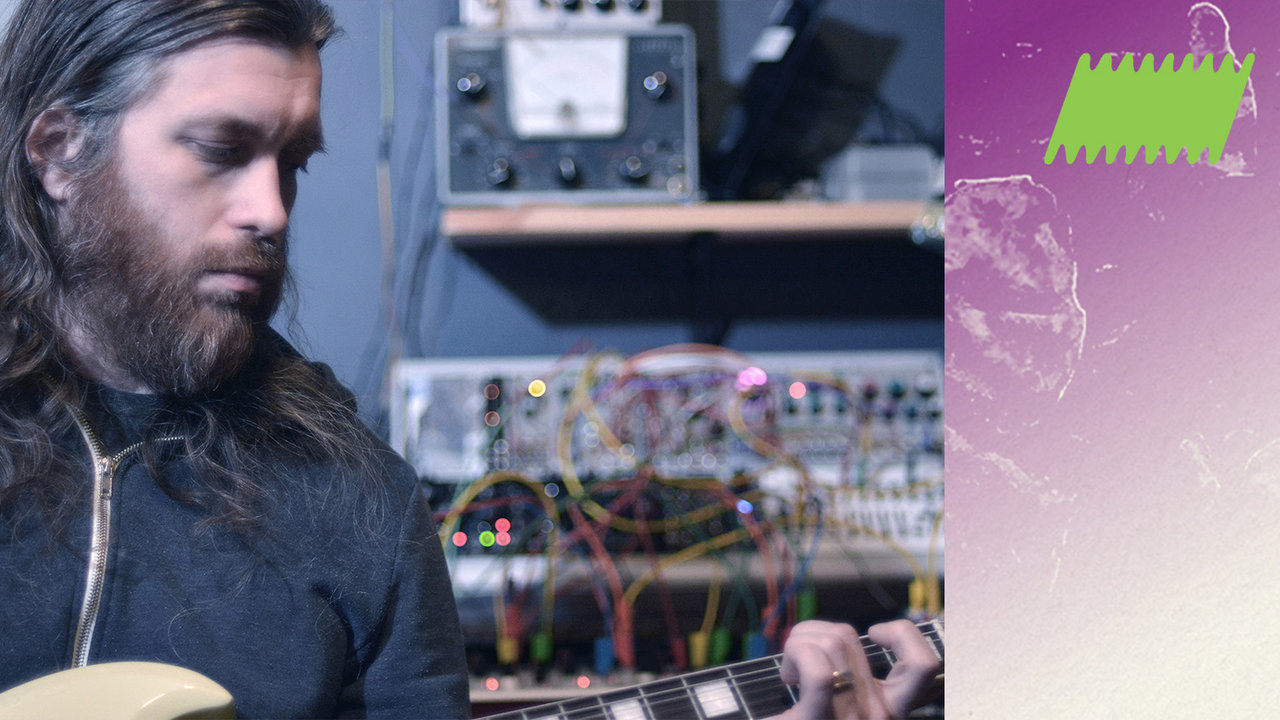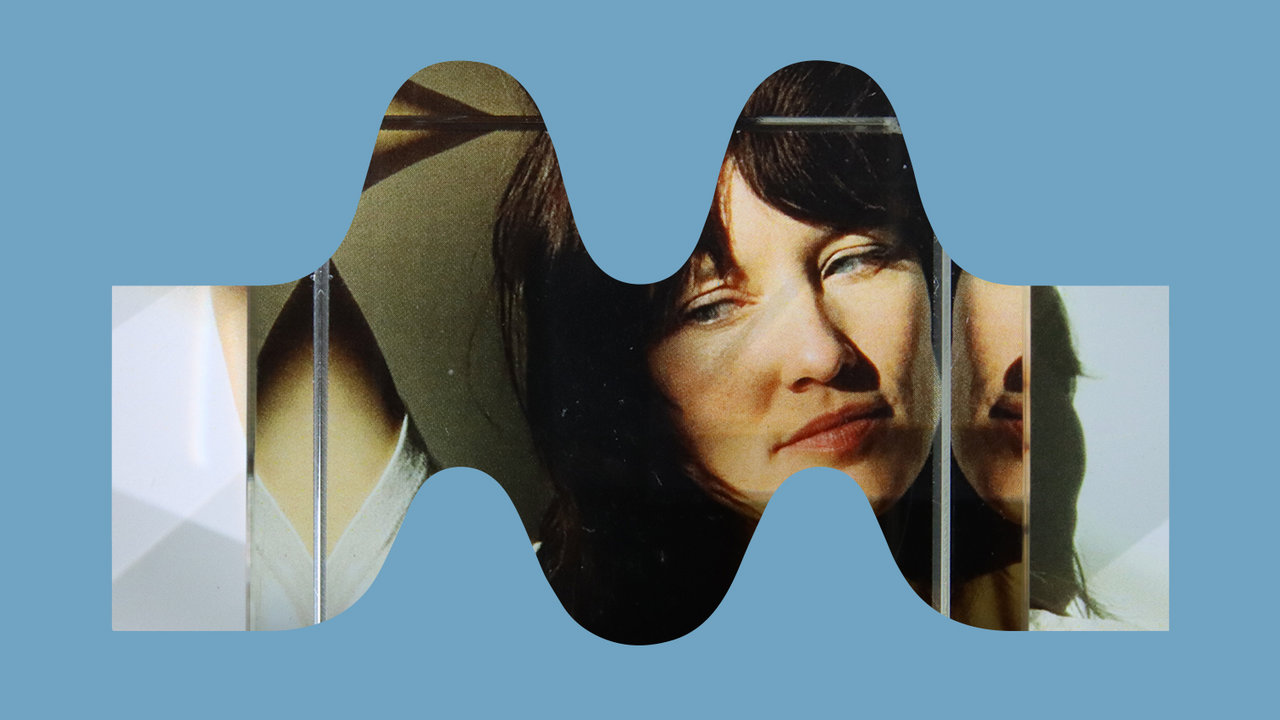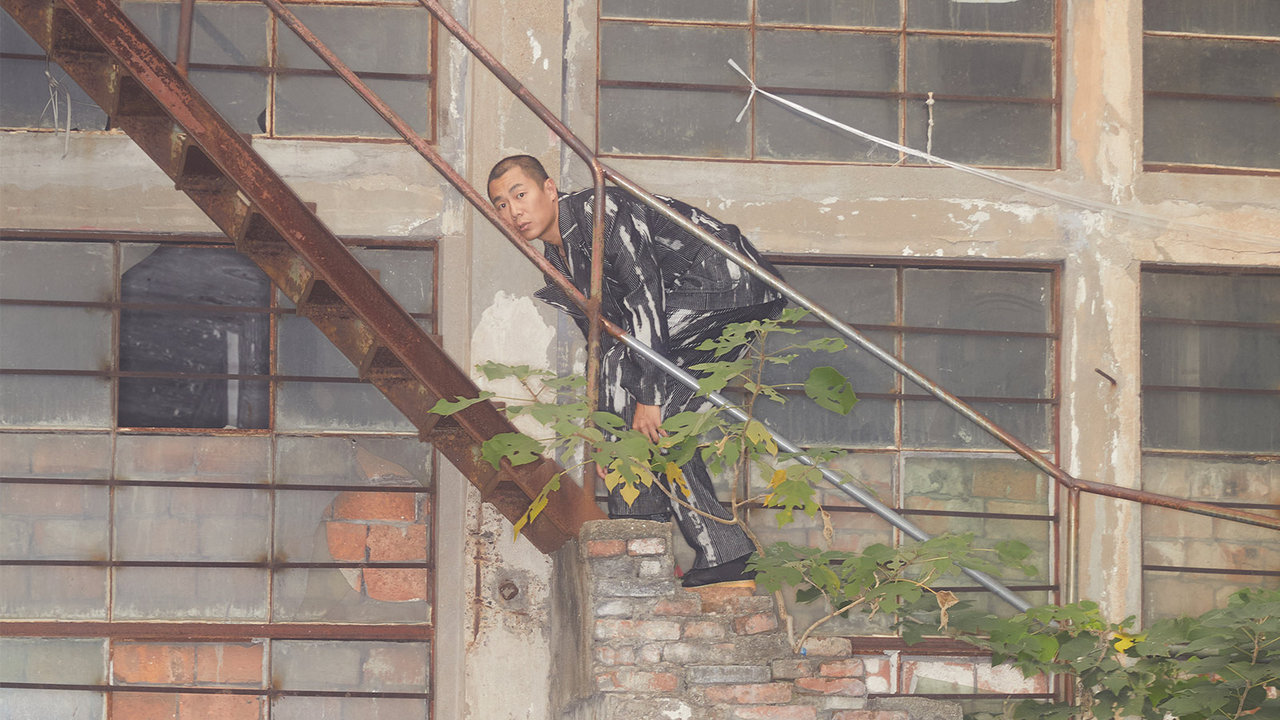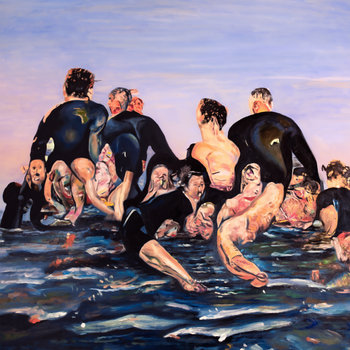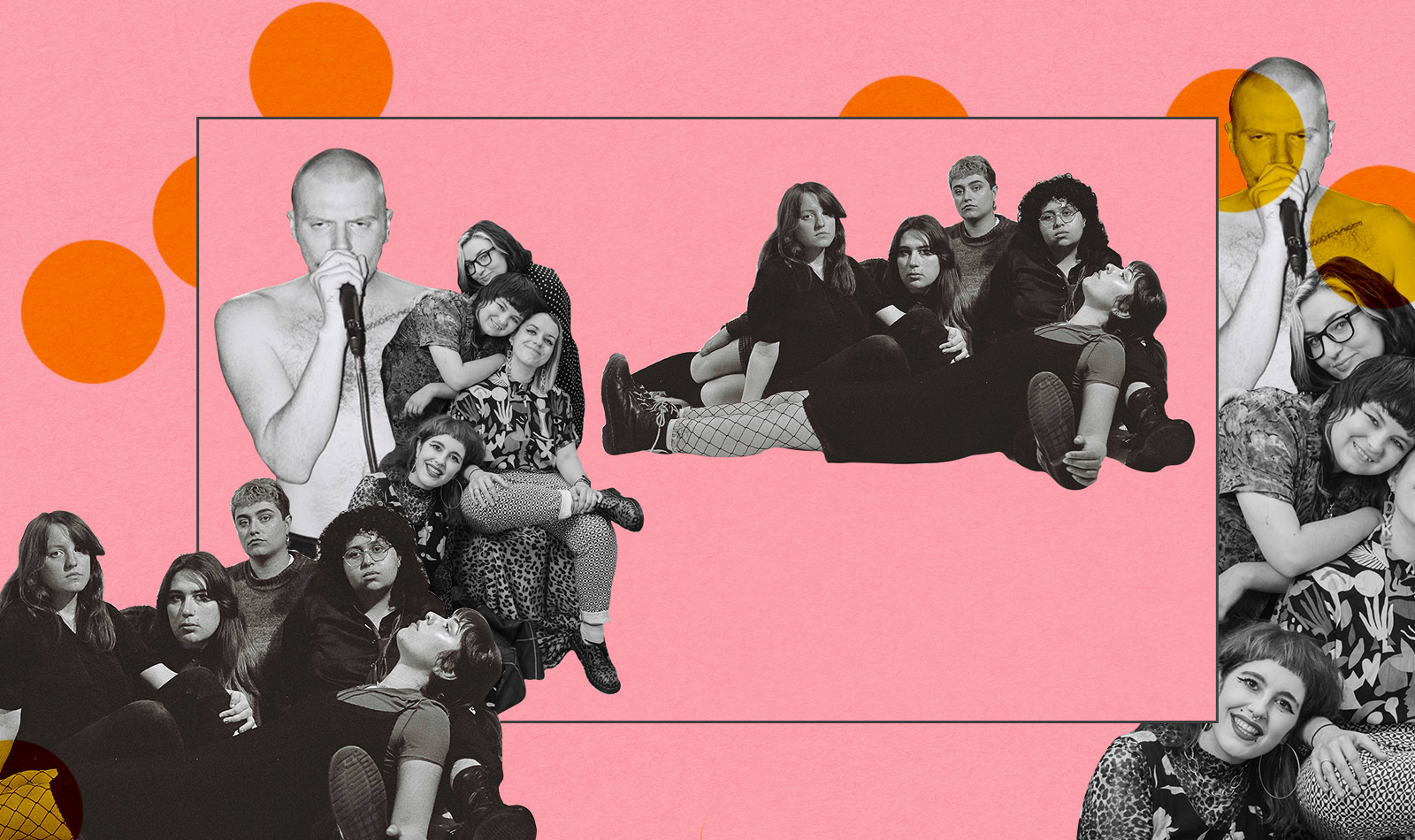
We’re having A Bit of a Moment here on the island of Ireland, to say the least.
Generational literary successes like Paul Lynch and Sally Rooney have been investigating and linking aspects of Irish history and identity to the anxiety and obfuscation of the post-Millennial age; the world’s film fandom is discovering what we’ve known for years about the considered but genuine cool of Cillian Murphy; while Irish fashion houses have taken their frame of reference to new places, both in terms of Execute Exist’s pivots to prehistoric imagery and domestic soccer jersey aesthetics, and Roisín Pierce’s meditations on crochet as liberatory method.
That’s before one even gets to the music. Independent and DIY music in Ireland, in its labyrinthine, word-of-mouth glory, has long reflected the nation’s collective internal monologue, tasked with doing so in the absence of substantial major label or media support.
The ongoing folk revival has brought our musical heritage into the future under the care and guard of Lankum, John Francis Flynn, Lisa O’Neill, Cormac Begley and countless others. Domestic hip-hop is a spectrum of scenes and communities unto itself, from idiosyncratic Limerick sounds from the likes of Strange Boy and Denise Chaila, to the polish of Dublin’s Soft Boy Records crew, or the hazy, semi-wholesome vibe cultivated by wordsmith Curtisy.
Electronic music’s many manifestations provide pockets of life for producers, DJs, and genre aficionados around the island, including the Department of Energy and Flood labels; while metal and punk endure and continue to move with the times among ever-faithful communities, most notably with new or upcoming LPs from Shardborne, Ten Ton Slug, and Coroza.
Strains of post-punk, shoegaze, and psychedelia continue growing and evolving differently than elsewhere, away from the glare of industry intrigue and resultant compromises, as best heard in the enduring work of The Altered Hours, the increasingly-focused seethe of Dundalk’s Just Mustard, or the long-beloved pop haze of Rachel Lavelle.
Even pop music, a particularly historically conservative tower of contemporary Irish culture, has bitten its own lip for the taste of blood in recent years, from the (contentious) Eurovision hype behind non-binary “ouija-pop” auteur Bambie Thug to the seemingly endless rise of CMAT, whose transition from self-effacing “queen of Irish country” to a universally-beloved exponent of low camp and high dander has endeared her to an adoring—and expanding—fanbase.
It’s against this background that your writer seeks to introduce you, dear reader, to 10 artists of note who currently live, create, and perform on our island. Each occupies a different aesthetic space, cultural peer group, personal canon, and relationship to still-developing history; each tears away at some aspect of the Irish condition, from long-held traumas, learned apathy, and deafening silences; and each is tasked with imagining new and different outcomes, at a time when such visions are clear to precisely no one, and said state of affairs is exactly what a broken and inhumane system requires to continue lurching forth.
Beginning (or continuing) the work of carving their and their peer’s place in the country of their imaginings (or yearnings); each of these artists is contributing to the vast tapestry of Ireland as we might perceive ourselves—or how we may dare to, in our musical futures.
girlfriend.
To Be Quiet





2 x Vinyl LP



Much of the conversation around the music of Dublin-based outfit girlfriend. has been around the unalloyed catharsis to be found throughout debut long player To Be Quiet.
Echoes of grunge, slowcore, shoegaze, and post-hardcore overlap and collide like waves, a warm yet quietly shifting home to a visceral, sometimes brutal exploration of trauma, misogyny, identity, loss, and disconnection; one that equally confronts hurts borne deep in the bones and countless small inhumanities that remain to be confronted. “He remembers the first time/ I don’t” is as concise a kick in the teeth as the later refrain in single “Trust”: “Say goodbye to yourself.” Equally as jaw-dropping is the primal scream that pockmarks “In Silence.” Give To Be Quiet your full and undivided attention at least once—sit with it, the experiences it invokes, and your own responses in the moment, and engage with the questions that will emerge.
I Dreamed I Dream
Why Say A Lot?
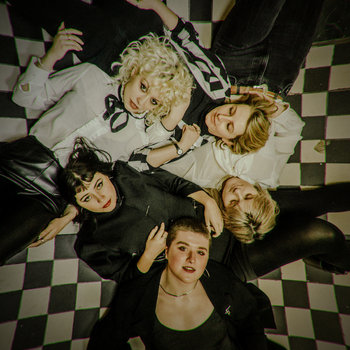

“TinTin Haircut” creaks open. It swings, it lollops, with a manky jangle that speaks briefly to the Corkonian post-punk idiom from under which five-piece I Dreamed I Dream has clambered—and then, a minute-and-a-half of a sound beating.
“We’re going gigging, girlies/ It’s not all cat,” enthuses drummer-singer Julie Landers, evoking Irish vernacular in something approaching a playground rhyme. Distortion and dissonance swirl. Misogynistic young fellas that would dare look at them or their peers as property, are simply threatened with being “sent back.”
Debut EP Why Say a Lot? has bigger-sounding songs, funnier moments, and a sean nós-style song about the horrible fate of the 214 bus to their home city’s southern suburbs. But this is what you need to know about I Dreamed I Dream: “The EP is a challenge to every teenage girl in Ireland: I dare you to start a band. I absolutely dare you,” said guitarist Elle O’Leary-Kelleher in a recent piece on Nialler9.
If we’re to bring down long-standing gender imbalances in music here and elsewhere, it starts with salting the earth they’re rooted in and from which her gauntlet must be picked up.
Problem Patterns
Blouse Club



Vinyl LP

“We’re one or two paychecks away/ While they decide who they won’t save,” was the line in Derry anarcha-feminist outfit Problem Patterns’s “Who Do We Not Save” that wrenched me when first I heard it; austerity, of course, being a generational issue that either official Ireland will never be able or willing to make up to our island’s youth for enacting.
Niceties are thankfully scarce on the band’s debut LP Blouse Club. A four-piece with no single front person, and no fealty to established gender, musical, or societal roles, an endorsement from riot grrrl pioneer Kathleen Hanna left Problem Patterns with their mission statement: if there isn’t a backlash, they’re not doing their job.
“Edgy” dudes concealing their parroted misogyny behind overly-practiced “shock-value” patter; the hypocrisy of “hate the sin, love the sinner” and other examples of thinly-veiled queerphobia beneath veneers of outreach; the othering and regression behind (astroturfed) TERFism— it’s all a target.
But neither do Problem Patterns give way to cheap “the world is fucked” nihilism of the kind that’s always been low-hanging fruit. They get about it with an energy, empathy, and directness that seeks to make their own voices and experiences heard, resonate with people, and open the doors to more meaningful conversations, thoughts, and actions. In short, they’re the kind of band that punk rock was made for.
Post-Punk Podge and the Technohippies
Euphoric Recall


Where to start with Post-Punk Podge and/or his Technohippies, at least as far as a quick précis?
Podge himself has been a fixture of music in Limerick and surrounds for years, as steeped in the various counter-cultural currents that have swept through modern life in the city as he has been in a profound relationship with Ireland’s musical tradition.
Taking his current form amid experiments with krautrock drum loops, a bass guitar, and the kind of political invective that only someone punching up from the depths of alienation can muster, he’s since occupied a place on Ireland’s radical fringes, traversing electronic, post-punk, and traditional forms, with a distinct voice that’s cut through the tangle of existing as a human being in late-capitalist Ireland.
For everything he’s always been right about, though, it’s in the Limerick music documentary Out of Place, made by members of Limerick DIY festival Féile na Gréine during the Covid-19 crisis, that Podge, the human being, stands out. Filmed outdoors during a day out busking, he’s one man with his fiddle, no middleman and no pretense. Footage of the day’s performances on sparsely-populated streets cuts in and out of conversations about music as his raison d’etre.
His discussion of his relationship with late friend and bandmate Kim Griffith, and their common bond in music and the home it provided for them both in their youths, evoked in single “Euphoric Recall,” is one of the most genuinely affecting pieces of music documentary you’re ever likely to see, Podge’s towering frame emanating the kind of love and vulnerability that is raw and all-consuming but essential and all-encompassing.

Trá Phaidín
An 424
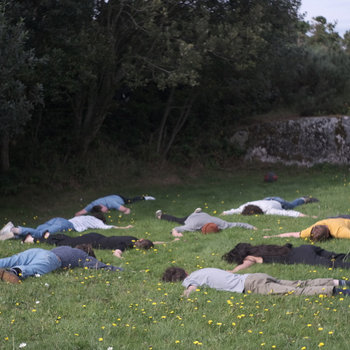
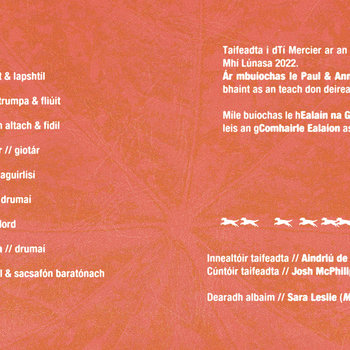
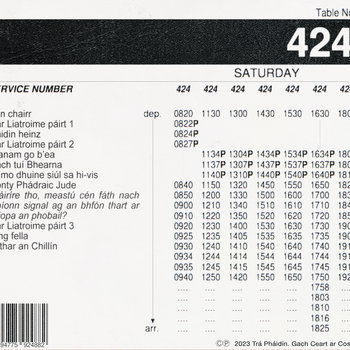
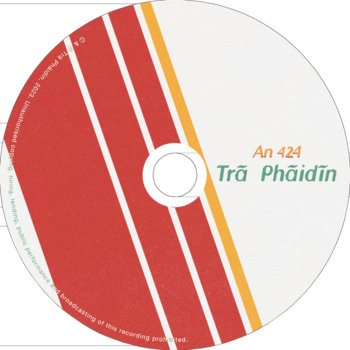
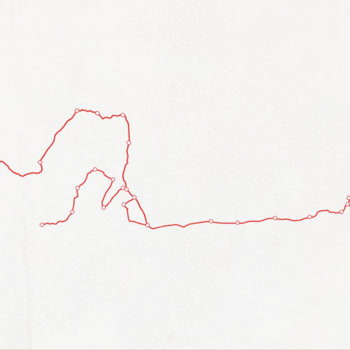

Compact Disc (CD)




To discuss liminal spaces in the arts is to take on all sorts of meaning, relationships to form and function, and the effects on our lives of their utility, both prescribed and unintentional. Subverting any tiredness around the device, Cork/Connemara outfit Trá Phaidín [‘traw fawdeen’] take the 424 bus between their shared physical axes as the mode of traversal for their debut studio full-length.
The Irish folk tradition and the Irish language serve as fundamentals for Peadar-Tom Mercier and crew, tapping into a connection to the land that is an important part of the experience of the West of Ireland. Those elements are let at play with semi-improvised psychedelia, long-form jazz, and elements of post-rock and ambience throughout.
“Cé Mo Dhuine Siúl Sa Hi-Vis?” rolls with an ease that suggests Americana, giving way to questioning sax and playful harp; “M’anam Go B’ea” invokes the inner child of Ireland’s 2010s math rock scene being taken for a nice day out at the beach; “Yung Fella” teases out more ambitious territory as our heroes’s journey home reaches a conclusion.
Muireann Ní Shé
Éistigh Liomsa Sealad



Compact Disc (CD)

Hailing from the wilds of rural County Cork, Muireann Ní Shé represents something of a convergence of propositions within the ongoing revival of the country’s musical tradition: the duty of care that lies in one’s custody of an art form, and the responsibility to shepherd it into the future, envisioning its contemporary identity and exploring its potential.
Ní Shé is an accomplished and established vocalist on her own, deftly navigating traditional song across the runtime of debut full-length Éistigh Liomsa Sealad; but her place as one of an emergent generation of female/AFAB uilleann (‘elbow’) pipers—or Mná na bPíob—taking our national bagpipes through their paces, is evident throughout.
Her capacity as a traditional multi-instrumentalist, including turns on the fiddle and tin whistle, mark her out as an able steward of song, but the scope of Ní Shé’s vision, marrying the weight and grounding of tradition with a keen sense of the evocative, the intransigent, as best evidenced on her “Gol na mBan san Ár,” is truly compelling.
Róis
UISCE AGUS BEAN

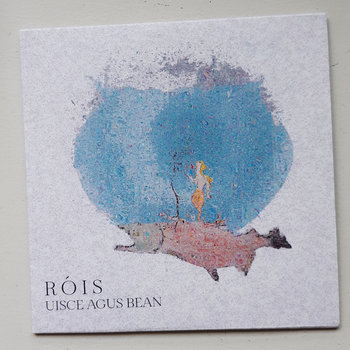


Compact Disc (CD)


I went to Cork Opera House’s Green Room venue last year for a gig that formed part of the return of the city’s beloved Quarter Block Party festival, a multidisciplinary event rightly hailed for placing performance, practice, and conversation right at the heart of the city’s historic working-class areas.
County Fermanagh woman Rose Connolly, aka Róis, was opening for Limerick alt-rockers His Father’s Voice. With a different lineup for each live excursion, which is genuinely impressive, Connolly caught the assembled crowd entirely off-guard with an improvised set that annihilated any lingering boundaries between aspects of Ireland’s sung musical tradition and contemporary sonic deconstruction.
2023 long-player UISCE AGUS BEAN is a survey of Connolly’s panoramic ambitions. “Primordial Womb of Emergence” holds jazz and contemporary composition equally close but casts them as the scenery around which her voice and accent weave and dance, while both parts of “Céilí” take béalcheol (non-verbal vocal expression) as a device for layered contrasts and variant dynamics: a comingling of dense and sparing, illustrative and transcendent. The result is a thrilling front-to-back listen, as well as a point of intrigue in terms of the further outward and upward expansion of the living tradition.
E The Artist
EeE


Among those at the center of a small but feverishly busy scene for experimental electronics in Dublin is Daranijoh Sanni, aka E The Artist.
A multidisciplinary creator whose visual, sonic, and experiential work has invited people to ask questions of their own ideas and relationships around race and the symbolism of nationality, E’s compositions and curations have likewise pulled from a wider frame of reference, from experimental hip-hop to forays into the distorted, driven electronics of African and South American diasporas.
Released via experimental rave collective Bitten Twice, extended-player EeE is a concise, yet relentlessly expansive window into Sanni’s outlook. Rooted in a collaborative and multicultural community brought together by a desire to test boundaries, including an appearance from frequent collaborator Julia Louise Knifefist on the serrated bounce of “ISMISM,” a sub-ten-minute runtime hurls the listener through harsh noise, baile funk, breakcore, and hip-hop.
Having spent his childhood between Dublin and Lagos, titles like “Of Inferior Roots” and “Further Considerations of Afropunkism” invite the listener to consider Sanni’s work on the nature of belonging and discourse in the current day and Ireland as both a rocky outcrop in the scheme of world affairs and a still-imperfect point of confluence for makers’ internal worlds.
Ordnance Survey
Turas


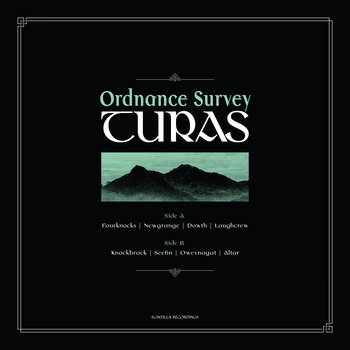

Vinyl LP


Neil O’Connor will, in time, be taken as an important figure in the progression of Irish contemporary composition in recent decades, between conventional electronic forms he creates as Somadrone, his time in influential post-rockers The Redneck Manifesto, and a vast body of work in composition, performance, and research in the field of electroacoustic music, under his own name and the assumed moniker of Ordnance Survey.
An apt sobriquet, that. Having spent decades exploring and populating our island’s body of knowledge around acoustics and their properties and generating new soundscapes from microtones taken from the work of national composer Séan O’Riada, O’Connor’s newest album Turas (“Pilgrimage”) acts on current themes of reconnection to the land and its history in direct fashion.
Visiting the country’s prehistoric wedge tombs and passage tombs, field recordings from the ground beneath him set the tone with feet crunching on gravel—but in recording elements of percussion and capturing playback of electronic segments in these monuments, he invests his work, bridging the digital and analog, with over 3,000 years of reverb, and all the disconnect, grief, patience and rediscovery that accompanies.
This harrowing, emotive meditation on the ways in which our own relationship to ourselves and our island can be interpreted and interrogated is brought to a devastating conclusion by “Altar,” an intergenerational interaction with pioneering electronic composer Roger Doyle, whose own explorations heralded expanded horizons and fresh questions of definitions of Irish culture at the turn of the last century.
Citrus Fresh
Good Grief


Limerick is rich with the emergent history of the hip-hop form on our island.
Videos of mustachioed teenage B-boys culled from regional news programs of the 1980s point to the outward gaze directed by Shannon Airport and its connections to the wider world for the country’s southeast, while the mainstream crossover success the of musically literate and locally vernacular comedy of The Rubberbandits (including one Blindboy Boatclub, now a podcasting institution and acclaimed surrealist writer) is credited by genre veterans as a moment of clarity for a national scene that was subsequently quick to discard its collective juvenalia. And much like his home city, there’s much about Citrus Fresh that’s hard to zoom in on in a quick fashion, not least on the 2023 album Good Grief.
A literate and articulate wordsmith, Fresh delivers insight, snark, belly-laughs, and pathos aplenty in his Shannonside cadence: “Everybody wanna be where the grass green, and everybody took their time movin’ past me/ No worries if you see me on the way, love, my feet stuck, but the muck is fairly spacious.”
Production, shared with collaborator 40Hurtz and guests including Rory Sweeney, broods quietly, a fragmented, distant complementing of musings on mental illness, doomed coping strategies and ennui, but allowing for the odd chuckle, like in “Chinese Airmax”‘s pivot to a looped dial tone and samples of wrestling legend Randy Savage, not a million miles away from the dichotomies of potential and experience hinted at throughout.

